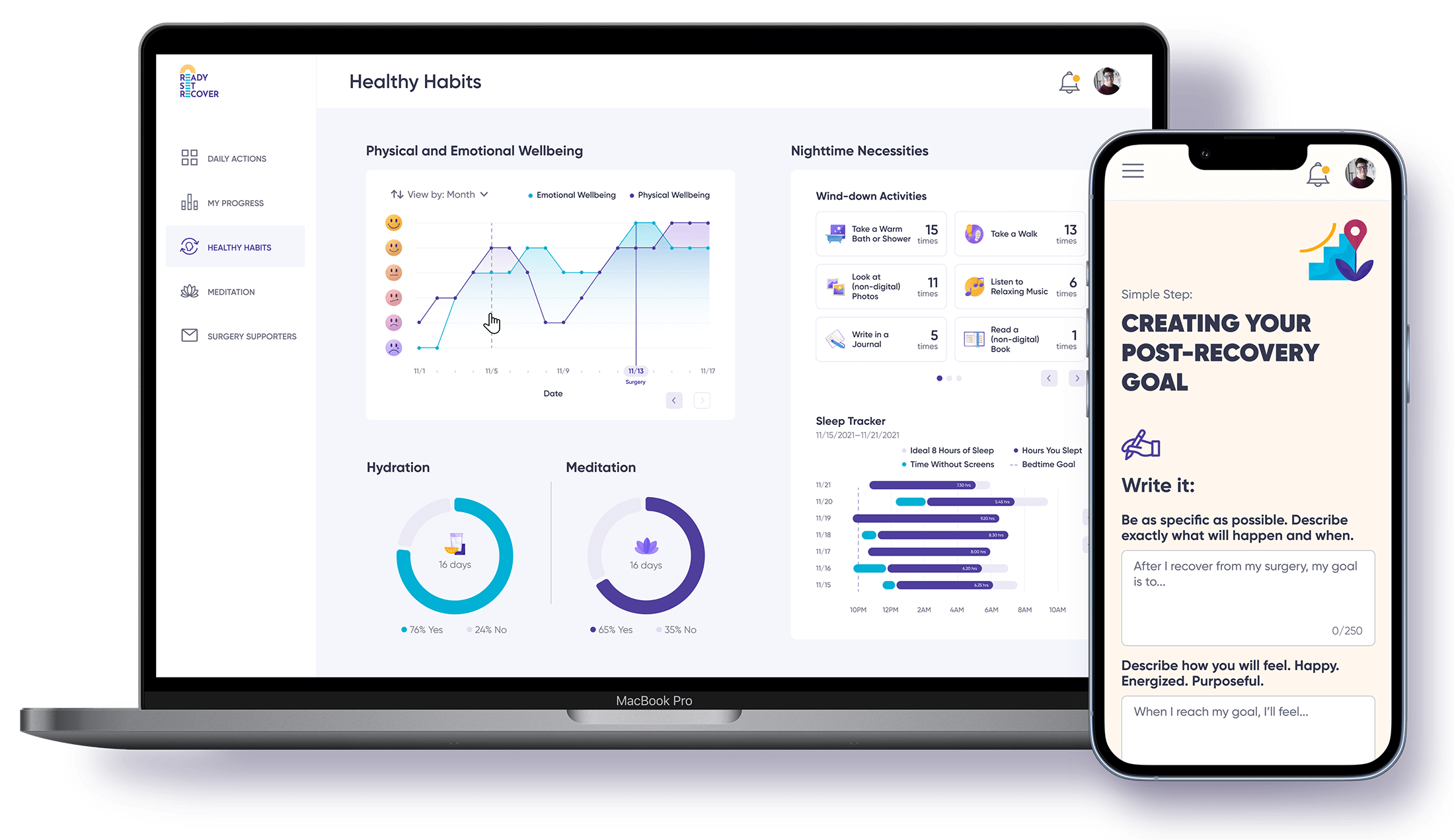Guidelines for Taking Tylenol and Anti-Inflammatory Medications Before Surgery


Key Takeaways
Tylenol (acetaminophen) is generally safe for use before surgery, as it does not affect blood clotting or increase bleeding risks.
Patients should consult their healthcare provider regarding all medications and supplements prior to surgery to ensure safety and minimize complications.
Avoiding aspirin and NSAIDs at least a week before surgery is important for reducing the risk of excessive bleeding during the procedure.
Introduction
Surgery can feel overwhelming—there’s a lot to keep track of, and it’s natural to feel a bit anxious. Preparing for surgery isn’t just about scheduling the date and arranging transportation—it involves making sure your body is in the best shape possible to handle the procedure. One thing you might not realize is how some everyday medications can interfere with your surgery. Even something as simple as an over-the-counter pain reliever can pose significant risks if taken too close to the operation. Understanding which medications are safe and which ones aren’t is crucial for a smooth experience.
Did you know that over-the-counter pain relievers, particularly NSAIDs, can increase surgical risks like excessive bleeding? It’s true. These common medications might seem harmless, but their effects on blood clotting can make a big difference during surgery. A simple decision to take or avoid a medication can mean the difference between a straightforward procedure and one complicated by unnecessary bleeding.
Let’s walk through what you need to know about taking Tylenol and other anti-inflammatory medications before surgery, so you can approach your operation with confidence and peace of mind. This guide is designed to help you understand why some medications are safer than others and how you can work closely with your healthcare provider to make the best choices for your health.
Being prepared and informed about what to take—and what not to take—makes a world of difference in your surgical journey. This isn’t just about following rules; it’s about empowering yourself to have the best possible outcome. Knowing the role Tylenol plays in managing pre-surgical pain safely, understanding why certain medications can be problematic, and having open, honest conversations with your healthcare team can significantly impact how smoothly your surgery goes.
We’ll explore how Tylenol, a widely-used painkiller, is uniquely suited for pre-surgical use, while certain anti-inflammatory drugs (NSAIDs) should be avoided. We’ll also touch on the importance of transparency with your healthcare team regarding all the medications and supplements you may be taking. Let’s ensure your surgery goes as smoothly as possible—from the preparations you make now, all the way through to your recovery afterward.
Tylenol (Acetaminophen) Before Surgery

What is Tylenol?
Tylenol, or acetaminophen, is that go-to pill when you have a headache, muscle ache, or fever. It’s one of the most common over-the-counter pain relievers and works by targeting specific chemicals in your brain that signal pain. Unlike ibuprofen or aspirin, Tylenol doesn’t have anti-inflammatory effects, which actually makes it a better choice if you’re heading into surgery soon. Why? Because Tylenol doesn’t mess with your blood’s ability to clot. When you’re preparing for any kind of invasive procedure, keeping your blood clotting ability intact is critical.
Acetaminophen is also often found in combination medications—like cold and flu remedies—so it's important to be aware of how much you're consuming overall. It's easy to accidentally take more than intended, especially when using multiple over-the-counter products. Knowing exactly what you're taking is essential for your safety.
Why Tylenol is Generally Safe
The reason Tylenol is safe to take before surgery is that it doesn’t thin your blood. Blood thinning can make surgery riskier by increasing the chances of excessive bleeding. Excessive bleeding during a procedure doesn’t just make it more challenging for the surgeon; it can lead to complications, extend recovery times, and potentially increase your time in the hospital. Nobody wants a longer hospital stay, right? Since Tylenol doesn’t have this effect, it’s usually considered a safe option leading up to your surgery.
Surgeons appreciate it when patients stick to painkillers like Tylenol because it helps them maintain control during the operation. Real-life scenarios have shown that patients who manage their pre-surgical pain with Tylenol rather than NSAIDs tend to experience fewer complications related to bleeding. While Tylenol doesn't reduce inflammation the way NSAIDs do, it effectively manages general pain, which makes it an ideal solution for the days leading up to surgery when the goal is to minimize risks.
Still, be sure to check with your surgeon—they know best, and they’ll let you know if anything in your medical history might change the recommendation. Some conditions, such as liver disease, can influence how safe Tylenol is for you. That’s why a one-on-one discussion with your healthcare provider is important.
When to Take or Stop Tylenol

For most people, Tylenol is okay to take right up until the day of surgery, making it a helpful option if you’re in pain. It’s particularly helpful for those final few days when you might be feeling sore or uncomfortable. Just remember that every surgery is a bit different, and your surgeon will be the one to tell you exactly when to stop taking it. Don’t skip this conversation—each person’s health situation is unique, and it’s always better to double-check. This tailored approach ensures that your surgeon is fully aware of your pain management plan, allowing them to offer the safest recommendations based on your individual needs.
Having an honest conversation about your pain management needs allows your surgical team to prepare effectively. They might recommend slight adjustments or alternative approaches based on your health profile, which ultimately leads to a safer surgical experience for you.
Recommended Dosage
In many cases, surgeons may recommend taking 1000mg of Tylenol every 8 hours for two days prior to surgery to manage pain effectively. This ensures that you're comfortable leading up to the procedure without increasing your risk of complications. However, always follow your healthcare provider’s specific dosage instructions. The suggested dosage helps keep you comfortable while ensuring that pain relief doesn’t interfere with your body’s natural healing processes during surgery.
A small but important note: some people may have conditions, such as liver issues, that might alter how much Tylenol is safe. Taking too much Tylenol, especially if you have liver concerns, can be harmful. This is why it's always important to confirm your dosage and timing with your surgeon—they can assess your unique health factors. Additionally, avoiding alcohol while taking Tylenol is advisable, because the combination can increase the risk of liver damage.
Anti-Inflammatory Medications to Avoid Before Surgery

What are Anti-Inflammatory Medications?
Anti-inflammatory medications, or NSAIDs (Non-Steroidal Anti-Inflammatory Drugs), are widely used for pain relief and reducing inflammation. You might know them better as ibuprofen (Advil, Motrin), naproxen (Aleve), or even aspirin. They’re great for day-to-day aches and pains, but things get tricky when you’re preparing for surgery. These medications work by reducing inflammation, but they also come with side effects that aren’t ideal for someone about to undergo surgery.
The anti-inflammatory action of NSAIDs works by blocking certain enzymes in your body that contribute to inflammation and pain. Unfortunately, these enzymes also play a role in blood clotting. By inhibiting these enzymes, NSAIDs can thin your blood, which is not something you want when you’re about to have surgery.
Medications Checklist
To make this easier, write down everything you’re taking. Prescription drugs, pain relievers, vitamins, herbal teas—yes, even those. Supplements that seem harmless can sometimes interact badly with anesthesia or increase bleeding. For example, ginkgo biloba and fish oil are popular supplements that can increase bleeding risk. A simple list helps your doctor decide what’s best, and that’s a step that can make a real difference. This list also helps prevent potential issues on the day of surgery when nurses and doctors need to be sure about any possible interactions before anesthesia is administered.
A comprehensive medications checklist also allows your surgeon to provide you with clear instructions about what needs to be stopped, what can continue, and what alternatives might be appropriate. This minimizes any last-minute surprises and makes your pre-surgical preparation as smooth as possible. Honesty and thoroughness in this step can make the difference between a complication-free procedure and unexpected issues.
Managing Blood Thinners
If you are taking blood thinners like Coumadin or warfarin, it is especially important to discuss these with your surgeon. Blood thinners significantly increase the risk of excessive bleeding during and after surgery, so they may need to be paused before the procedure. Depending on the type of surgery, your surgeon may coordinate with your prescribing doctor to temporarily adjust the dosage or switch you to a different medication. Your healthcare team will give you specific instructions on how to safely manage these medications, including how many days before surgery to stop and what alternative measures might be needed to reduce clotting risks without increasing other risks.
Switching or pausing blood thinners can be anxiety-inducing, especially if you take them for a chronic condition like atrial fibrillation or a previous blood clot. Rest assured that your healthcare providers will work together to minimize the risks on both ends—managing clotting risks while also reducing the risk of bleeding during surgery. Following their instructions is the safest way to protect yourself.
Follow Instructions Closely
Once your surgeon gives you specific instructions, stick to them. Forgetting or ignoring medication instructions could lead to delays, complications, or even a canceled surgery. It’s not worth the risk. Always double-check with your medical team if you’re unsure about what’s okay. Preparing for surgery requires teamwork—you and your healthcare providers are partners in ensuring your procedure goes well, so don’t hesitate to reach out for clarification.
Following the plan isn’t just about taking or not taking a pill; it’s about creating the best conditions for your body to handle the stress of surgery and recover well afterward. The fewer complications you have, the quicker you’ll be on the road to recovery and back to doing the things you love. If you’re ever unsure, even about something small, call your surgeon’s office—they’re there to help.
Final Tips for Medication Safety

Plan Ahead
Preparing for surgery is all about having a plan. Knowing in advance which medications are okay and which aren’t can help you make smooth adjustments as your surgery date approaches. This is especially important when it comes to NSAIDs—you don’t want to be caught off guard just because you didn’t realize how these meds could affect your surgery. Go through your medicine cabinet early, check any labels you’re unsure of, and talk to your doctor well in advance so you’re not scrambling at the last minute.
The earlier you start planning, the easier it is to make adjustments without feeling rushed or panicked. This is especially true if you need to switch from an NSAID to another type of pain reliever or if you have multiple medications that need to be reviewed. The more time you have, the more confident you’ll feel when surgery day arrives.
Stick to the Plan
Your surgeon’s instructions are designed with your safety in mind. Stick to what they tell you, especially regarding Tylenol and NSAIDs. The instructions may seem simple, but following them carefully will help you avoid complications like excess bleeding and ensure you have a smooth recovery. Small details, like stopping a medication or replacing it with a safer option, can make a significant difference in the outcome of your surgery and how soon you get back to feeling like yourself.
Sticking to the plan also involves being mindful of other habits, such as avoiding alcohol or smoking, which can affect your surgery and recovery. Medications aren’t the only things that influence surgical outcomes—lifestyle choices matter too. Every small step you take to follow instructions contributes to a better overall experience.
Ask Questions
Don’t be afraid to ask questions. Whether it’s about a prescription drug, an over-the-counter remedy, or a supplement, it’s better to know for sure than to guess. By asking questions, you can feel informed and confident, knowing you’re fully prepared for your upcoming surgery. Your healthcare team is there to support you, and no question is too small or too silly if it helps you feel ready.
Conclusion
Properly managing your medications before surgery is a critical part of ensuring a safe and successful outcome. Tylenol is generally a safe option for pain management leading up to surgery, while NSAIDs and other blood-thinning medications should be avoided to prevent complications. The key to a smooth surgical experience lies in open communication with your healthcare provider—make sure they know everything you’re taking, including over-the-counter drugs and supplements. By following these guidelines, you can reduce risks, feel more confident going into surgery, and focus on what matters most: your recovery.
Frequently Asked Questions
Can I Take Tylenol Before Surgery?
Yes, Tylenol is usually safe as it does not affect blood clotting, but always confirm with your doctor. The general recommendation is that Tylenol can be used for pain relief up until the day of surgery, but individual circumstances may vary.
Why Can't I Take Anti-Inflammatory Medications Before Surgery?
These medications can thin your blood, which may lead to excessive bleeding during surgery. Blood thinning can complicate both the surgical procedure itself and the recovery process, which is why NSAIDs are typically avoided in the days leading up to surgery.
What Should I Do If I Accidentally Take an NSAID?
Notify your healthcare provider immediately. They will determine if your surgery needs to be rescheduled or if additional precautions can be taken. It’s important to be honest with your healthcare team to ensure your safety.
Can I Take Herbal Supplements Before Surgery?
Many herbal supplements can interfere with anesthesia or increase bleeding risks. Discuss any supplements you are taking with your surgeon to determine if they need to be stopped. Supplements like ginkgo biloba, garlic, and ginseng are known to increase bleeding risk, and should usually be discontinued well before surgery.
Is It Safe to Take Prescription Pain Medications Before Surgery?
This depends on the specific medication. Always review prescription painkillers with your surgeon to ensure they are safe to take leading up to surgery. Some prescription painkillers may need to be adjusted or stopped, depending on their interactions with anesthesia and other medications.
What Should I Do If I Forget to Stop Taking a Medication?
If you forget to stop taking a medication, contact your surgeon as soon as possible. They will advise you on the next steps and determine if it impacts your surgery schedule. Depending on the medication, they may still be able to proceed with the surgery, or they might need to adjust the plan to ensure your safety.
Why is It Important to Follow Pre-Op Instructions Closely?
Following pre-op instructions, such as stopping specific medications like aspirin or ibuprofen, is critical to reduce risks during your surgical procedure. Ignoring these instructions could result in increased complications, such as severe bleeding, that could compromise the success of your surgery and lengthen your recovery time.
How Many Days Prior to Surgery Should I Stop Taking NSAIDs?
The typical recommendation is to stop taking NSAIDs 7-10 days prior to surgery. This timeframe allows the blood-thinning effects of these medications to wear off, reducing the risk of complications during surgery. Always confirm the exact timeline with your physician, as this can vary based on individual factors and the type of surgery being performed.






